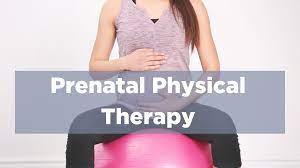Are you pregnant and looking for information on prenatal physical therapy? You’re in the right place! In this blog post, we will discuss what prenatal physical therapy is, what it can help with, and how to find a therapist near you. We will also answer some common questions about prenatal PT. If you are pregnant and looking for relief from pain or discomfort, prenatal physical therapy may be the right choice for you!
Contents
- 1 What Is Prenatal Physical Therapy?
- 2 How Do I Find Prenatal Physical Therapy Near Me?
- 2.1 Look online
- 2.2 Ask your doctor
- 2.3 Ask other moms
- 2.4 Choose a location
- 2.5 Make sure you’re comfortable
- 2.6 Trust your instincts
- 2.7 Don’t be afraid to ask questions
- 2.8 Be honest about your pain
- 2.9 Get a second opinion
- 2.10 Take your time
- 2.11 Look for experience
- 2.12 Check credentials
- 2.13 Schedule a consultation
- 3 Conclusion
What Is Prenatal Physical Therapy?

Prenatal physical therapy is a type of therapy that is specifically designed for pregnant women. This type of therapy can help to relieve pain, improve mobility, and prevent or treat pregnancy-related issues such as incontinence and pelvic girdle pain.
Physical therapists who specialize in prenatal care can provide you with exercises and stretches that are safe for both you and your baby. They can also help to educate you about how to properly take care of your body during pregnancy and after childbirth.
How Do I Find Prenatal Physical Therapy Near Me?

Prenatal physical therapy can be extremely beneficial for both mother and child. It can help relieve pain, improve mobility and flexibility, and even reduce the risk of preterm labor. However, it’s important to find a PT who is experienced in working with pregnant women, as not all PTs are familiar with the special considerations that need to be made for expectant mothers. Here are some tips on how to find the right PT for you.
Look online
If you are looking for a specific type of therapy, like prenatal physical therapy, look online for lists of local providers. This can be a great way to get started in your search. You can also check websites like Yelp or Google Maps to find reviews of local businesses.
Ask your doctor
If you are already seeing a doctor for your pregnancy, they may be able to refer you to a local prenatal physical therapist. This is a great option if you want to be sure that the therapist you see is reputable and has experience working with pregnant women. If you’re not sure where to start, ask your doctor or midwife for a referral to a PT who they trust.
Ask other moms
If you know any other moms who have been through pregnancy, they may be able to give you some great recommendations for local providers. This can be a great way to get some personal recommendations that you can trust.
Choose a location
There are many prenatal physical therapists that you can choose from. You can either go to a hospital, a clinic, or even a home-based service. Each has its own advantages and disadvantages, so it’s important to choose the one that’s right for you.
Hospitals: The main advantage of going to a hospital is that you’ll be able to receive the best possible care. If you have a complicated pregnancy or a history of medical problems, then a hospital is probably the best place for you. However, hospitals can be very expensive, and they’re often not covered by insurance.
Clinics: Clinics are a good option if you’re looking for a more affordable option. They can also be a good choice if you don’t want to go to a hospital. However, clinics don’t always have the same level of care as hospitals, so it’s important to do your research before choosing one.
Home-based services: If you’re not comfortable with going to a hospital or clinic, then you may want to consider a home-based service. These services are often more affordable, and they can be just as effective as other options. However, it’s important to make sure that the service you choose is reputable and has a good track record.
Once you’ve chosen a location, it’s important to find a prenatal physical therapist that you’re comfortable with.
Make sure you’re comfortable
It’s important that you feel comfortable with your PT. Be sure to ask any questions you have, and voice any concerns you may have. For instance, if you’re pregnant and feeling self-conscious about your changing body, let your PT know. He or she can help put you at ease and make sure you’re comfortable during your session.
Your PT should also be familiar with the types of pain you may experience during pregnancy. For instance, round ligament pain is a common complaint among pregnant women. If your PT is not familiar with this type of pain, he or she may not be able to properly treat you.
Trust your instincts
If you don’t feel like a PT is a good fit for you, trust your instincts and find someone else. There are plenty of qualified PTs out there, so you’re sure to find one who’s a good match for you. For example, if you’re uncomfortable with a male PT, don’t hesitate to request a female PT.
Don’t be afraid to ask questions
Your PT should be more than happy to answer any questions you have about your treatment. If you’re unsure about something, don’t be afraid to ask. For example:
- How long will my treatment take?
- What can I do to speed up my recovery?
- When can I expect to see results?
Be honest about your pain
It’s important, to be honest about your pain levels with your PT. If the exercises are too painful, let them know. The last thing you want is to worsen your condition by doing something that’s too strenuous.
Get a second opinion
If you’re not sure about a diagnosis or treatment plan, get a second opinion from another PT or healthcare professional. It’s always better to be safe than sorry. For most people, physical therapy is a safe and effective way to relieve pain and improve mobility. But as with any medical treatment, there are potential risks and side effects.
Take your time
There’s no rush to get better. Physical therapy takes time and patience. Don’t be discouraged if you don’t see results immediately. Trust the process and give it some time. For example, if you’re coming in for lower back pain, our first priority will be to help you manage your pain and improve your function. Once we’ve helped you get to a place where you’re feeling better and functioning well, then we can start working on prevention.
Look for experience
It’s a good idea to find a PT who has experience working with pregnant women. Ask your PT how many years they’ve been practicing, and how many clients they’ve seen who were pregnant.For example, if you have a complicated pregnancy, you’ll want to make sure your PT has experience dealing with high-risk pregnancies.
Check credentials
When you’re looking for a prenatal physical therapist, it’s important to make sure that they have the proper credentials. You can check with your state’s licensing board to verify that your PT is properly licensed and certified.
Schedule a consultation
The first step is to schedule a consultation with a prenatal physical therapist. This will give you an opportunity to discuss your concerns and ask any questions you may have. The therapist will also be able to assess your individual needs and develop a treatment plan specifically for you.
What to expect:
During your first session, the therapist will likely ask you about your pregnancy history and symptoms. Be prepared to discuss any pain or discomfort you are experiencing, as well as any concerns you have about your pregnancy. The therapist will then perform a physical examination. This may include tests of your range of motion, flexibility, and strength. Based on the information gathered, the therapist will develop a personalized treatment plan.
Conclusion
It may be concluded that “prenatal physical therapy near me” can help relieve pain and improve function for many pregnant women. Prenatal physical therapy can help to avoid or resolve common pregnancy-related issues such as lower back pain, pelvic girdle pain, and carpal tunnel syndrome. Additionally, prenatal physical therapy can prepare the body for labor and delivery by helping the muscles and ligaments to relax and lengthen. If you are pregnant and experiencing any pain or discomfort, be sure to talk to your healthcare provider about whether prenatal physical therapy near me may be right for you.
Physical Therapy help patients recover from pain. If you’re experiencing Back pain, Shoulder pain, Knee pain, Neck pain, Elbow pain, Hip pain, or Arthritis pain, a physical therapist at MantraCare can help: Book a physiotherapy session.


